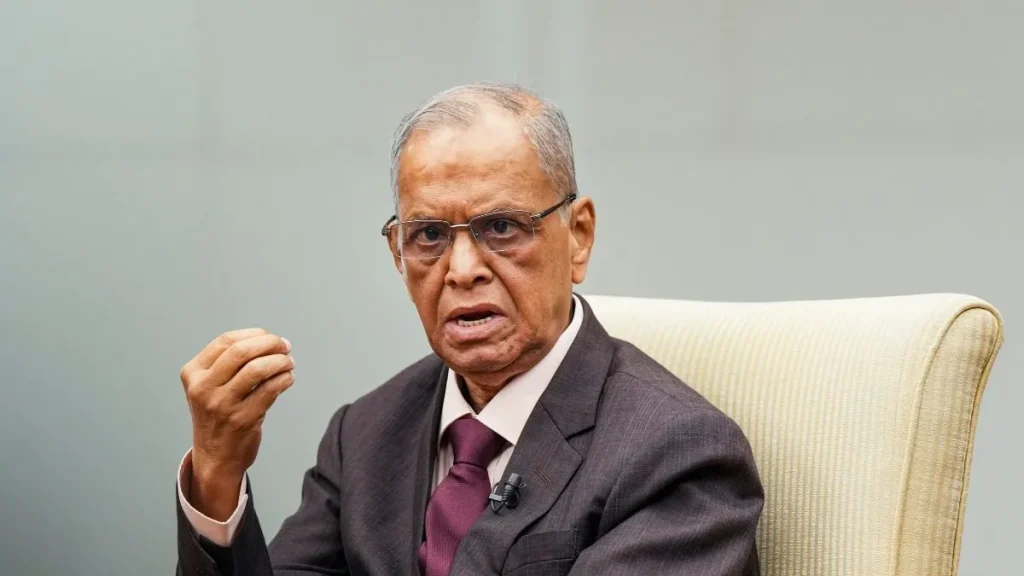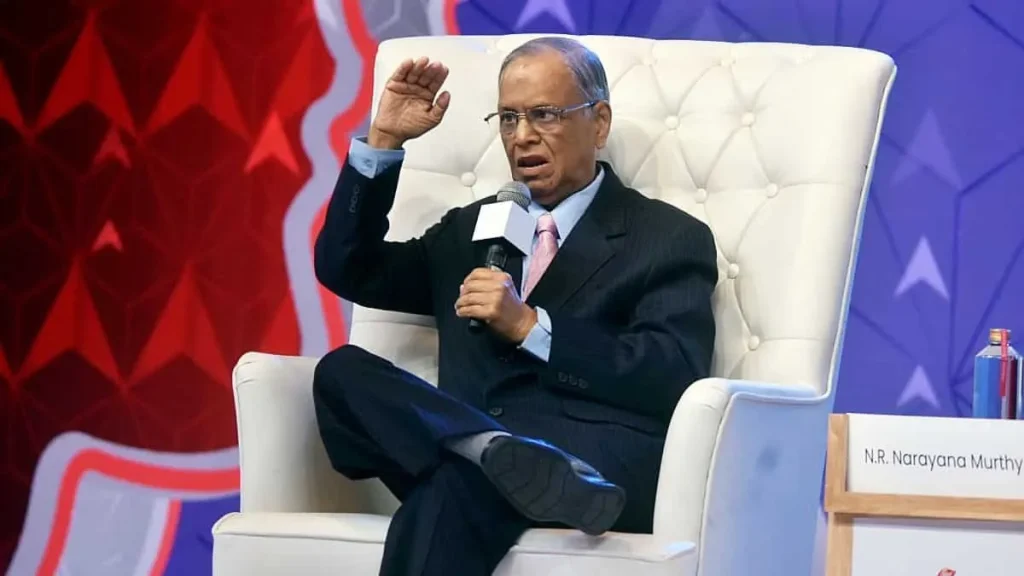Infosys co-founder Narayana Murthy reflected on the sacrifices made by the previous generation, including his parents, siblings, and teachers. He emphasised, “One generation must make many sacrifices to improve the lives of the next. My parents, siblings, and teachers made significant sacrifices for my progress, and my presence here as the chief guest is proof that their sacrifices were not in vain.”

Concerns About Population Growth
Murthy has identified India’s rapidly increasing population as one of the country’s greatest risks to sustainability. Speaking at the convocation ceremony at Motilal Nehru National Institute of Technology in Prayagraj, where he was the chief guest, Murthy noted that population control has been largely neglected since the Emergency period. This oversight, he argues, now threatens India’s future.
Murthy pointed out that India faces significant challenges related to population density, land availability, and healthcare facilities. He contrasted India’s situation with countries like the US, Brazil, and China, emphasising, “Since the Emergency period, we Indians have not paid enough attention to population control. This poses a risk of making our country unsustainable. Countries such as the US, Brazil, and China have far higher per capita land availability.”
Scepticism About Competing with China
Murthy has previously expressed doubts about India’s ambition to rival China as a global manufacturing hub. At the ‘ELCIA Tech Summit 2024,’ he warned against prematurely adopting terms like “hub” and “global leader,” citing China’s dominant role in global manufacturing. He remarked, “China has already become the factory of the world. Around 90% of things in supermarkets and home depots in other countries are manufactured in China. They have six times the GDP of India. It is too audacious of us to say India will become the manufacturing hub.”

The Role of Governance in Manufacturing Growth
Murthy stressed that while India’s IT sector thrives on exports, the manufacturing sector relies more on domestic contributions and government support. He highlighted the need for improvements in public governance, including reducing bureaucracy and increasing transparency, speed, and accountability. “For manufacturing, by and large, the domestic contribution is more, and the government plays a big role in the success of manufacturing. Unfortunately, the response time, transparency, accountability, speed, and excellence in public governance in a country like India still need to improve,” he said.
